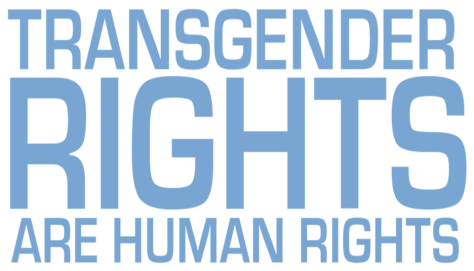Last week we were introduced to Caitlyn Jenner. She is strong. She is brave. She is beautiful. Unfortunately, she is also the anomaly.
Transgender issues run so much deeper than obtaining the cover of Vanity Fair. We can take the moment to celebrate the newfound visibility that high-profile trans people like Laverne Cox, Chaz Bono, and, now, Caitlyn Jenner have achieved for the community. However, we must not forget the vast majority of transgender men and women who cannot lead open and visible lives for fear of discrimination and violence.
Health care continues to be one of the largest hurdles for transgender people. Most private and public health insurance plans have blanket bans on coverage for gender transition health care costs. For instance, the feminization procedures that Caitlyn Jenner was able to pay for out-of-pocket are comprehensively excluded from most coverage. Once those exclusions are lifted, we must work to ensure that trans people have meaningful, comprehensive access to transition-related care without unnecessary preconditions and limitations on the types of care provided.
Transgender people are constantly denied a place to live, employment, and access to public places and businesses simply because of who they are. A vast majority of federal, state, and local laws do not protect people from discrimination based on gender identity or gender expression.
For the last 10 years, the federal government has failed to pass the Employment Non-Discrimination Act, which would provide protections in the workplace against discrimination on the basis of sexual orientation or gender identity. Even though the Department of Justice recently released a memo directing the department to include gender identity under sex discrimination employment claims brought under Title VII of the Civil Rights Act of 1964, this only gives the Civil Rights division the ability to bring claims against state and local public employers. The Department of Justice has no authority to bring suit against private employers.
Here in New Hampshire, we have state level protections against discrimination based on sexual orientation only. “Gender identity” is not yet listed as a protected status, which leaves our transgender residents vulnerable to discrimination.
Is it time for gender identity protections in the Granite State? Our two United States Senators believe so; both Senator Shaheen and Senator Ayotte have voted for gender identity employment protection at the federal level. Derry, Durham, and Portsmouth have all made efforts to include gender identity protections for their municipality employees recognizing that fighting discrimination benefits the entire community. So why is the “First In The Nation” state the last state in New England to add protections for their transgender residents?
Today, as we acknowledge and applaud those of us who are able to be visible and safe in our homes, workplaces, and communities, let’s take the opportunity to work for those of us who cannot be visible without experiencing harm. Our community needs more than visibility; we need safety and life affirming services for the most vulnerable among us.
By Stephanie Ramirez
Stay Informed
Sign up to be the first to hear about how to take action.
By completing this form, I agree to receive occasional emails per the terms of the ACLU’s privacy statement.
By completing this form, I agree to receive occasional emails per the terms of the ACLU’s privacy statement.

